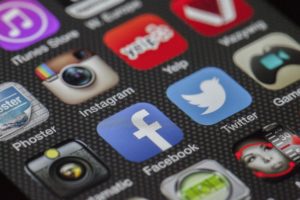 It’s no secret how much President Trump loves taking his message directly to the public through his Twitter account. Recently, Trump’s account has started to block people who express opposition to his tweets.
It’s no secret how much President Trump loves taking his message directly to the public through his Twitter account. Recently, Trump’s account has started to block people who express opposition to his tweets.
By blocking these people, it prohibits them from reading and responding to tweets from Trump’s account.
Do you have a right to see the president’s tweets? There is currently a legal battle pending as to whether it is a violation of the First Amendment for Trump to continue to block people from seeing his tweets.
Is Twitter a Public Forum?
The central question in this case is whether the president’s Twitter account is a “designated public forum.” Under the First Amendment, a designated public forum is a forum that is set aside by the government for the purpose of free expression.
In such a forum, the government may only place limits on the time, place, and manner in which the speech is made, but cannot censor the content of speech without a compelling interest.
The Knight First Amendment Foundation is arguing that the president’s Twitter account is a designated public forum and blocking people from this forum is a violation of their First Amendment rights. The foundation is stating that since the president of the United States controls the account, the government therefore operates it for the purposes of public expression. By blocking access to the account to people who are critical of him, Trump is censoring the free speech rights of those who disagree with him, according to the Knight First Amendment Foundation.
The argument has some weaknesses. First, like other social media services, Twitter is a privately owned and operated service that allows anyone to sign up for an account and use it for free. Also like other social media services, users must agree to Twitter’s terms of service before they can use the site, which means that Twitter reserves the right to deactivate accounts that violate those terms. Thus, President Trump’s legal team could argue that Twitter is a private forum in which the president is but one of millions of participants, and therefore the content can be regulated.
President Trump could also argue that his account existed prior to his election as president, and therefore it is not a government account. This argument has been tested in the courts, but the results would not give Trump confidence. In Davison v. Loudon County, a federal case out of Virginia, the court sided with a citizen who sued the Loudon County Board of Supervisors after a comment he left on the chair of the board’s Facebook page was deleted. The court did not agree with the county that the Facebook page was a personal page.
The Legal Headaches of Presidential Tweets
The president’s Twitter has played a starring role in the judicial review of his executive order prohibiting travel to the U.S. by persons from certain countries in the Middle East. In the decisions to block the order, the courts have determined the president’s own language on Twitter indicates that the order was a ban based on religion, and therefore a violation of the Constitution. His Twitter account could also become important evidence in the investigations surrounding Russia’s attempts to influence the 2016 election, and whether he attempted to obstruct the FBI’s investigation into that matter by firing FBI Director James Comey.
In fact, earlier this month, Congressman Mike Quigley (D-Ill.) introduced the Communications Over Various Feeds Electronically for Engagement, or COVFEFE Act, designed to include social media accounts as presidential communications that must be preserved. The act would mean that the president could not delete his tweets or Facebook posts once they have been published.
It remains to be seen whether President Trump’s Twitter account will also become a First Amendment headache for the White House as well.
Do you think Trump blocking Twitter users violates the First Amendment? Please let us know in the comments section below.


